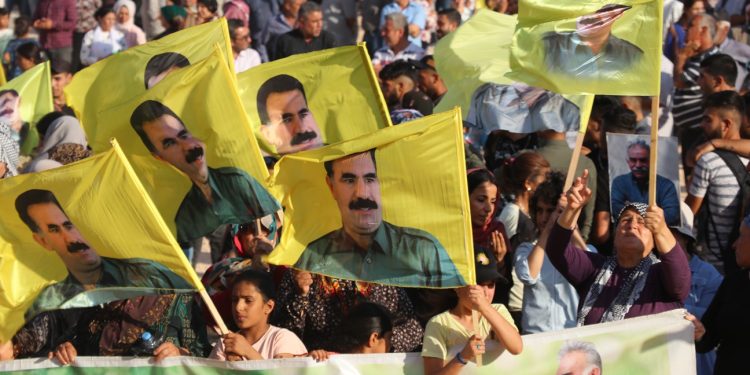NEWS CENTER – Eleven years after its outbreak, the July 19 revolution, which first sparked in the city of Kobani and spread to all cities in North and East Syria, was able to present something different from the revolutions that the region witnessed, and soon its course changed, as the region began to reap some of the fruits of the popular revolution; military forces have been formed to protect the regions of North and East Syria, and self-administrations have been built to manage and organize their people and provide services to them. They have also created an intellectual, cultural and educational leap in a region in which Syrians of different races, religions and sects participated in managing and protecting themselves and coexisting together as brothers on the principle of a democratic nation.
In an interview with ANHA’s agency, Egyptian experts congratulated the people of North and East Syria on the occasion of the anniversary of the July 19 revolution, stressing that the Rojava revolution protected a large segment of the Syrian people and confronted terrorism, and had a major role in preserving the Syrian land.
The experts praised the success achieved by the Autonomous Administration of the people of North and East Syria, one of the fruits of the July 19 revolution, considering it an inspiring experience in the model of popular governance in the Middle East.
Inspirational model

The Egyptian writer and historian, Ali Abu al-Khair, saw that “the Autonomous Administration of North and East Syria represents an inspiring model in the experiences of autonomy in the region.”
He told ANHA’s agency: “The July 19 revolution, perhaps one of the few revolutions in the Middle East, was able to achieve its goals, noting that the reality confirms that the experience of the Autonomous Administration is considered successful and must be circulated and preserved. The presence of the Autonomous Administration contributed to achieving many of the demands of the Syrian people of all sects, as it succeeded in standing up to the Turkish occupation and maintaining security in the region, in addition to the wonderful role played by the Syrian Democratic Forces SDF in eliminating terrorism by defeating ISIS.
What was achieved in North and East Syria would not have been without the presence of the Autonomous Administration, which succeeded in managing many battles, challenges and threats and was able to achieve gains that were not achieved in many regions, whether inside Syria or even in some countries in the region.”
Regarding the possibility of repeating the Autonomous Administrations in other regions, Abu al-Khair saw that “the Arab region in general has been living in a state of political fluidity, so to speak, for a long time and not only today, but it has increased in severity during the past ten years. In addition to major crises facing the people of the region and the control of Western powers over their wealth, which makes the idea of the Autonomous Administration difficult at the present time.”

In his turn, the writer and political analyst, Ibrahim Shaaban, stressed that “The experience of autonomy in the Arab countries is still a recent experience that has not yet matured, and it still needs an authentic democratic experience to establish it. Arab societies are still suffering from crude demagoguery, accusations and clichés against the experience of autonomy and Autonomous Administration in the Arab region.
The experience of the Autonomous Administration of North and East Syria is considered a mature and successful experience despite its recent age, just like the experience of Iraqi Kurdistan despite the difference in capabilities and challenges. Despite all the accusations against the Autonomous Administration in North and East Syria, which were repeated throughout the past years, it is a successful democratic experiment by all standards, especially that it succeeded in representing the various components of the people of North and East Syria without the control of a component, race, religion or denomination”.
Shaaban added that he “does not object to the experience of the Autonomous Administration and self-rule in the Arab region, and it may be a successful experiment or it may fail, but the basic criterion is to move away from treason, and the main concern is the advancement of society.”
The Egyptian writer believed that “the experience of the Autonomous Administrations could be the ideal solution to crises such as Syria, Yemen, and Libya in particular, provided that it preserves the unity of states, preserves their wealth for their people, and prevents the existence of new authoritarian regimes.”




